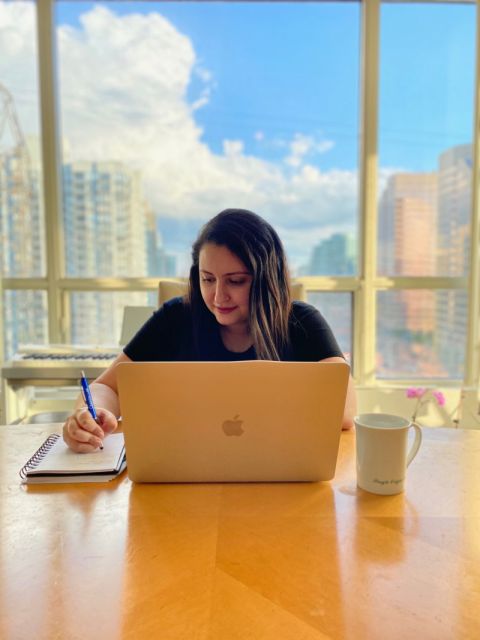
“After taking Constitutional Law, I found myself wanting to learn more about the behind-the-scenes work for the Charter challenges we read about in class.” These are the words of Mahgol Taghivand, Law’22, who pursued her interest all the way to the Canadian Civil Liberties Association (CCLA), where she interned remotely this summer. “The CCLA’s work focuses on the protection of Charter rights, so it was a perfect fit!” she exclaims.
As she e-rotated through the non-profit organization’s privacy and equality sections over the past four months, she was able to contribute to its main goal: to stand up to power and defend the rights and freedoms of Canadians. “The research I’ve done has been used to support challenges the CCLA has launched, including its work on Quebec’s Bill 21 (which enacted a ban on religious symbols) and Toronto’s COVID-19 homeless shelter response,” she explains. “My research has also helped answer the questions of Canadians regarding the protection of their privacy rights when it comes to emergency powers during the COVID-19 pandemic.”
With work that was primarily research-based, Taghivand was able to further develop her research skills, especially in memo-writing. She researched topics related to privacy legislation, discrimination in the workplace, and solitary confinement. “The most important thing I’ve learned from my research work is how to decide on an effective search strategy that works for my memo timeline, which can vary from one day to a week or more,” she says.
“I’ve also been able to hone my legal critical thinking skills through the weekly discussions at the CCLA regarding human rights topics, such as the use of facial recognition technology by police forces, emergency powers during the COVID-19 pandemic, and the usage of interlocutory injunctions.”
In addition, she helped with the CCLA’s education presentations and with drafting legal letters and challenges.
From her internship experience, Taghivand has two key take-aways. “I’ve learned how long the legal process can take from the discussion of an issue all the way to the launch of a legal challenge in court,” she says. “I’ve also learned that our civil liberties are often being eroded in ways that may seem small, but that ultimately have a big impact. For example, consenting to take a COVID-19 test should not mean that the police have access to the personal health records of those who tested positive as this violates an individual’s constitutional rights to privacy and equality.
“These lessons will help me in law school and my career,” she continues. “They’ve taught me to trust the legal process and to recognize that even small changes to the law can make a big difference.”
Taghivand is one of 10 students whose summer internship was made possible with a Torys Public Interest Summer Internship Award. “Thank you, Torys LLP, for supporting my internship,” she says. “Your generosity has allowed me to explore my interests in human rights law. Without your support I would not have been able to volunteer with the CCLA. I’m grateful for the opportunity.”
What’s Taghivand’s advice to the incoming class of Law’23? “Do an internship if you can!” she exclaims. “My time at the CCLA was a valuable experience that gave me insight into how non-profit law organizations function and provided me with the opportunity to think about human rights issues in a close-knit environment. The skills and connections I have been able to develop made it a great way to spend my summer!”